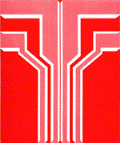Nebraska Academy of Sciences

Transactions of the Nebraska Academy of Sciences and Affiliated Societies
Date of this Version
1976
Document Type
Article
Citation
Published in Transactions of the Nebraska Academy of Sciences, Volume 3 (1976).
Abstract
Foundations of a discipline, e.g. economics, means to lay bare meta-or epitheoretically the presuppositions in form of protomodels or paradigms or background knowledge together with the methodologically important hypotheses or principles which may be expressed by axioms dealing with a part of the discipline or the total field. The description of the protomodels such as ideological presuppositions, political views, religious and metaphysical basic ideas together with their influence on the discipline is often called hermeneutics, whereas the latter methodological foundation has to prove that the whole discipline can be derived classically - deductively or probabilistically- from the. given axiom, a task which is especially interesting if the discipline consists of well formed hypotheses or theories. The first typically methodological step consists in singling out similar hypotheses and theories of discipline, i.e. dealing with the same field (D). In such a sense the differences between macroeconomic theories, such as theory of money, of income and price level and microeconomic theories such as resource allocation, theory of markets, of firms and households dwindle down, if we characterize macro- as well as microeconomics according to J. St. Mill, H. Sidgewick, A. Smith, K. Marx as based on a common field D, namely on economic preferences, values as well as actions and decisions. Elimination of "economic" to avoid circularity, leads to the epitheoretical statement:
ESl: Macro- and microeconomic hypotheses and theories are preoccupied or may be reduced to the investigation of evaluative processes and/or to decision making dealing with creation of values by labor (production) comparison, exchange, distribution and possession of creative (produced) values.
A. Smith, K. Marx, L.v. Mises, Rodbard and the Austrian school of economics saw in value creation, not in production of goods, the crucial problem of economics. This seems to be a withdrawal to the onetime occasional title of economics as "the science of values" without being concerned with the factual demand of economic decisions. This definition would certainly be too wide for our purpose, since we have restricted the basis of economics to "value creating actions" which is equivalent according to A. Smith and K. Marx to "productive labor." The following explication by ES2 may be regarded as a protomodel or paradigm in the sense of Kuhn, in the light of which we have to understand economics. We will call this paradigm the protomodel of value creative actions and describe it epitheoretically by reformulating Rodbard's praxeological foundation of economics.
ES2: The protomodel of value creation consists of the following presuppositions: All economic actions are defined as purposeful individual evaluative behavior which may serve for decision making under risk and uncertainty and are based on production, exchange and distribution of values if the following conditions are fulfilled:
2.1 Actions require an image of a desired state (end), a technological plan and/or procedure to arrive at this end.
2.2 Desired ends presuppose that the future state is more satisfactory for the individual as well as for his society.
2.3 More satisfactory states can only be achieved by value creating means. Means are the created manufactured goods or factors of production (artificially produced by man's labor or available from nature).
2.4 The means to achieve the desired ends are always scarce.
2.5 The ranking of final ends as well as the means to achieve desired ends change according to the changing efforts, time and technical (technological) procedures constantly developed.
The whole paradigm 2 boils down to the primitive model that things which are momentarily scarce have to be created, realized. The realization, creation of an end product or good gives the final end product a value, i.e. creates values.
It seems that man in and within his society is not primarily striving for maximization of his utility or satisfaction, but tends to produce, create new goods which are scarce. 2.3 and 2.4 replace therefore the utilitarian maximization of utility. 2.4 introduces at the same time a minimal Pareto condition.


Comments
Copyright 1976 by author(s).